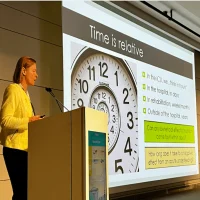Critical illness is characterised by various phases and outcomes, including deterioration, organ dysfunction, and recovery or death. Patient care is often fragmented, with different groups of healthcare providers managing different aspects of the patient's journey. Communication and collaboration gaps between these groups can lead to breakdowns in care and potentially impact patient outcomes. A study reported that delays in transferring patients from general wards to the ICU were associated with increased risks of ICU and hospital mortality. It often happens that within the ICU, critical care teams may not be aware of events and discussions before admission, and important details can be lost in incomplete ICU discharge summaries.
The concept of "ICU without borders" involves critical care team members actively managing critically ill patients or those at risk of deterioration, both in the ICU until recovery and beyond. This approach ensures continuity of care by facilitating the transfer of essential information and coordinating care. Through staff alerts and electronic systems supported by telemedicine, the critical care team can engage in the assessment and decision-making process as soon as patients show signs of deterioration outside the ICU. They assist in directing the next steps and contribute to discussions regarding the need for escalated care. Appropriate interventions can be initiated on the ward, ranging from organ support to symptom relief and palliative care. Successful implementation of this model can also prevent or facilitate timely admission to the ICU. Other benefits include education and training of ward staff and medical teams and emotional support for patients, families, and clinical staff.
Transitioning from the ICU to the general ward poses significant challenges for patients, including anxiety and increased risk of adverse events, including readmission and death. The "ICU without borders" model offers a safety net and supports patients' ongoing physical and emotional recovery while facilitating the early detection of potential complications.
Implementing post-ICU clinics, where critical care team members provide support and address patients' questions and concerns, is another aspect of the "ICU without borders" concept. Additionally, wearable technologies and home-based rehabilitation programmes can help identify and manage symptoms of post-intensive care syndrome. In addition, post-ICU follow-up clinics can extend care to family members who may be at risk of exhaustion, PTSD, anxiety, and depression.
Many healthcare institutions have already implemented models like outreach teams and ICU follow-up clinics. Technology and monitoring equipment advancements offer opportunities for critical care teams to expand their reach even further. These innovations enable the provision of pre-hospital treatment and post-hospitalisation care at home and during patient transit. Technologies also facilitate the tracking and communication of patients' preferences, including advance directives and organ donation wishes.
The "ICU without borders" concept should be seen as a bi-directional model that encourages accessibility and collaboration. Extended family visiting hours facilitate connections between patients, their loved ones, and their home life.
The COVID-19 pandemic demonstrated the importance of "ICU without borders" in promoting cross-border cooperation and mutual aid. Patients were transferred between countries. In the early stages of the crisis, some member states of the EU dispatched teams of doctors to provide critical support to severely affected neighbouring countries. This highlights the significance of international collaboration and solidarity in times of crisis.
However, implementing such a care model requires skilled staff and a flexible infrastructure equipped with reliable alerting systems, remote monitoring tools, and the ability to provide basic organ support when necessary. A well-defined governance structure with clear accountability is essential to prevent adverse incidents and conflicts.
But overall, the "ICU without borders" model offers benefits such as early detection of patient deterioration, improved information transfer, and efficient resource utilisation. It also provides opportunities for multidisciplinary research across all phases of critical illness.
Source: Critical Care
Image Credit: iStock







